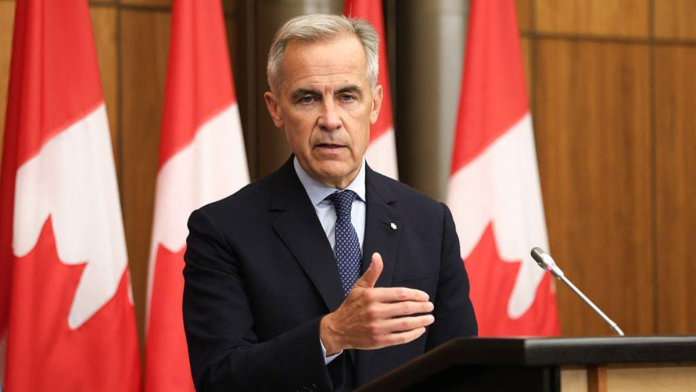Prime Minister Mark Carney has announced that Canada will remove many of the retaliatory tariffs it had placed on U.S. goods. The decision marks a major shift in the country’s trade strategy. Carney said the move reflects a recent U.S. step in easing trade restrictions and is aimed at improving economic ties between the two nations.
The tariffs were originally put in place to fight back against U.S. duties on Canadian exports. For now, tariffs on U.S. autos, steel, and aluminum will remain. These are considered sensitive and strategic sectors for Canada, and talks with the U.S. will continue.
During a press conference, Carney explained that Canada and the U.S. now have free trade for most goods under the USMCA agreement. This pact, signed by Canada, the U.S., and Mexico, ensures that goods covered by the deal can move freely without added costs. He described this development as a “positive step” and said it shows both sides are committed to cooperation.
India-China relations see cautious reset as US tariffs tensions escalate
The Canadian dollar gained strength following the announcement, showing that markets welcomed the decision.
Tariffs and Talks with the U.S.
Canada has been holding discussions with the U.S. for months about creating a new trade and security partnership. Although no final deal has been reached, officials confirmed that negotiations are ongoing. Carney also shared that he spoke with U.S. President Donald Trump, who welcomed Canada’s decision to ease tariffs.
Trump described the move as a “nice thing” and expressed hope for better ties. This comes after months of back-and-forth tensions, where Canada had responded strongly to U.S. tariffs with its own set of countermeasures.
Canadian judge on ICC sanctioned by U.S. for role in Afghanistan war crimes probe
A few months earlier, Carney had also dropped a planned digital services tax, which American companies strongly opposed. Additionally, talk of further sanctions was halted in the summer, signaling a gradual softening in Canada’s approach.
Still, not all tariffs have been lifted. Canada continues to keep a 25% duty on steel and aluminum imports from the U.S. This came after Trump raised tariffs on Canadian metals to 50%. Automobiles and lumber are also areas where trade barriers remain.
Business leaders in Canada have urged the government to focus on protecting key sectors, especially those still under tariffs. Goldy Hyder, president and CEO of the Business Council of Canada, stressed the importance of the USMCA agreement, saying it shields Canadian businesses from larger trade disputes.
Political Challenges at Home
The announcement is creating debate inside Canada. Carney’s Liberal government does not hold a majority in parliament, which makes it dependent on opposition parties to pass important votes. Opposition leaders, including the Conservatives, have criticized Carney for being too soft in dealing with the U.S. They argue that removing tariffs without securing stronger commitments could weaken Canada’s position.
Cannabis legalization fuels $76.5 billion boost to Canada’s economy over six years
During the last election, Carney had campaigned on taking a firm stand against U.S. trade measures. Since then, however, his tone has become more moderate. Critics say this shift could open him up to political attacks, especially as trade relations remain a hot topic in the country.
Canada’s earlier prime minister, Justin Trudeau, had taken a harder stance. At one point, tariffs of 25% were placed on C$30 billion worth of U.S. goods annually. That plan had been part of a larger package meant to cover C$155 billion in imports, though much of it was delayed.
Now, Carney’s new strategy appears focused on building cooperation with Washington while still defending critical industries. He made clear that while many tariffs are being lifted, Canada will keep pressing for fair treatment in steel, aluminum, autos, and lumber. Preparations are also beginning for a scheduled review of the USMCA deal, which will officially open in 2026.
For now, most Canadian goods will move into the U.S. market without added costs, restoring smoother trade for the majority of sectors. The step has been welcomed by businesses but continues to spark political debate across the country.


